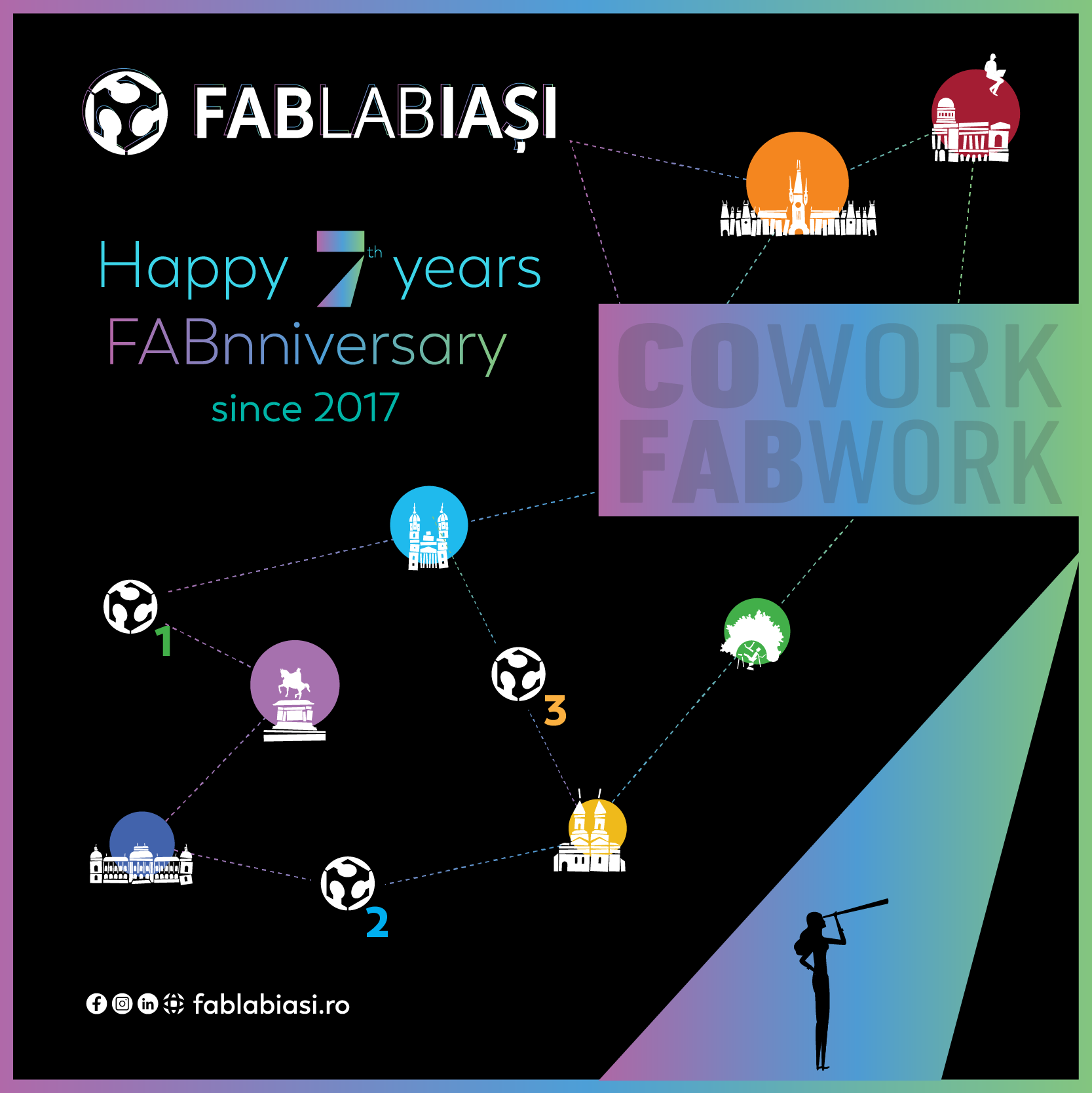As we are all approaching the end of this bizarre year, we keep experimenting what the “new” normal means for each and everyone. From the most impactful consequence, not being able to go to school or even access online-lessons for a significant part of globe’s children, to crucial ones, like not being able to gain an income and support our families at all, or not being able to see the loved ones.
If we are talking strictly about the work environment and the changes that we have all been experimenting in the course of this year, we must say that the “new” normal is in fact the “standard” normal for a particular category of workers: the freelancers.
During this year, most of us got to explore some working routines, which are not that “new” at all for most of the freelancers worldwide:
- Disorganized sleeping patterns;
- Working from home or from coworking spaces;
- Always working more than 8 hours per day, to reaching 12 or even 14 billable hours;
- Sharing the office-space with the kids, with the whole family;
- Conducting interregional and international business meetings from our kitchen;
- Setup an online professional profile, portfolio or website, so that potential clients could find us and reach us faster;
- Children and pets interrupting our calls, asking for food;
- Working while sitting on a chair, on the sofa, on the bed, on the floor, in the garden.
Suddenly, this pandemic made us all turn our freelancer-mode on and forced us to learn more about how to conduct our business online.
Restaurants who never wanted to make deliveries had to move their menus online, make deliveries available and design a whole new business model. Global fashion brands that were focusing their sales mainly on physical stores were forced to close most of them and switch to opening online shops. Teachers had to learn how to work with computers, with video communication software, with microphones and cameras, and how to facilitate an online class. Even athletes had to stick to their training routines, but not from gyms and stadiums, but by using the very facilities freelancers usually use, and start exercising on a chair, on the sofa, on the bed, on the floor, in the garden.
At Rungutan, we know what freelancer-mode means. After working in the corporate environment for so long, we decided to start an online company for almost 4 years now, delivering DevOps consultancy services worldwide. This helped us understand the challenges digital companies have, which made us realize that we can offer more value by bringing innovative tech products to the business world.
Rungutan, our first launched product, is a disruptive API Performance Testing platform available as a service, offering rich technical features useful for simulating application traffic spikes, up to the point of simulating denial of service scenarios.
We advocate the concept of 3-Minute Performance Testing because of Rungutan’s 100% Serverless technology and simple design, which differentiate the product among its competitors with rapidity and effectiveness, providing a disruptive tool that will change the way online traffic is tested and simulated.
We are no strangers to the challenges of conducting a digital business for an SME, for a startup that wants to scale or for an entrepreneur who does not want to disappoint his online customers. Having an e-commerce website or a mobile app in pandemic times, is crucial for a business to survive. The frightening part is the fact that even with an online presence, there are aspects that we cannot control all the time and that can affect our sales.
Studies show that almost half of the users abandon a website after only 3 seconds delay in loading a page. This is a serious problem affecting e-commerce websites on Black Friday Sales, Fintech mobile applications on certain times of the month when invoices are created or when bills are paid, or even essential services websites on which lives of people depend on (such as an ambulance routing algorithm with loading delays because of multiple requests, that their system cannot process).
In a world where we need everything better and faster, Performance Testing can help identify more precise the nature or location of a software-related performance problem. The solution for this is doing load testing and stress testing on a daily basis, and not only before big releases or important scheduled campaigns.
Performance testing in pre-production is a must. Here is how Performance Testing could help your business:
- Scalability: In case you are delivering software as a service (SaaS), you most probably already have chosen the best new platforms and technologies, and you have got a world-class development team. Why would you bother thinking about performance engineering? Surely your application will perform. Right? Yes, your first version will probably perform well. Maybe. But what if you want to scale? Are you confident your product will perform well in any circumstances? Scalability means more customers, and performance tests will help you setup the right infrastructure for any traffic scenario possible. This is why, Rungutan offers the possibility to simulate users from 15 concurrent regions, the maximum amount available with Amazon Web Services, providing real-time reports, easily accessible by the entire team.
- Happy clients: Offering a service faster than the competition (or equally fast) is as important in the digital environment, as it is in an offline store. The downfall is that in the case of bad online experiences, an unhappy customer leaves testimonials, bad reviews and might never turn back on your website. Delivering a website with no loading problems, is the first thing you can do to offer a good customer experience, because that is the first interaction they have with your website. For this reason, we have published a case-study in collaboration with our partners at Pago, a Romanian mobile app in Fintech, who were looking for a Performance Testing solution that could prepare their infrastructure for a future traffic spike they were expecting. The nearly 100 tests that were created in 2 months, by their Performance Testing team of 5, has helped them define their caching mechanisms and infrastructure behavior while delivering their platform 62% faster. This helped them process 5 times more users and payments for the specific period then before. The full study can be accessed on Rungutan.com/Blog/.
- Brand credibility: Happy clients translate into good brand reputation which means they will return and your business could benefit long-term from their loyalty. Letting customers down on Black Friday Sales only because your system cannot process the number of concurrent users on the website, might setup a bad example for future Campaigns.
- Lower infrastructure costs: A scalable business needs scalable infrastructure costs. A business owner cannot pay infrastructure bills that he cannot afford in fluctuating periods when the website does not have users, in financial crisis times for example. In the same time, its infrastructure must be strategically designed to support traffic spikes and to be able to perform at its best in any circumstances. A healthy way to do it is by simulating actual user interaction through your website, an out-of-the-box feature of our service. For our partners at Pago, the stress tests created with Rungutan, have allowed them to gather valuable information about their infrastructure as well, as they were able to reduce server cost by approximately 40%.
- More Revenue: Processing more concurrent clients and making sure your application is healthy under heavy loads means bigger revenue capacity. For any business wanting to scale Performance Testing can help at creating tests and simulating traffic that will optimize the platform.
If you are a Performance Testing aficionado like us, you will appreciate the importance of these 3 characteristics of Rungutan for a scalable business:
- Concurrent global containers – Through the power of our Serverless Technology, we are able to launch up to 1000 concurrent containers within 15 concurrent regions around the globe to simulate your tests.
- We also have CI/CD integration – The platform is designed from the bottom up in regards to flexibility for user interaction, meaning that testing on a daily basis or after each release can be easily done through GitLab, Jenkins, GitHub or any other similar tools using our CLI.
- And we also offer Scriptless load creation – We have designed, developed and perfected our own way of generating load test cases which does not require any programming skills whatsoever.
The pandemic will soon end, but its effects will reflect mostly in the global economy. Even though financial crisis existed before, this time, in this specific point of the history, due to the development of the technology, almost everyone was able at least to look at solutions to survive in a way or another. Imagine how the pandemic would have unfolded if we had all the systems and protocols in place globally from the beginning. If all governments were prepared to act effectively and if not so much time was wasted identifying the problems and finding solutions.
In the same way we see Performance Testing protocols. Why? Because the life of your business matters and any lost second might be crucial. Because your business might be the one that will contribute to reducing the effects of the existing crisis, by producing jobs and development opportunities.
But mostly, because we really love our platform and we know from our own experience how time-saving a valuable deep tech product can be, when the client asks in an official demo “How many users per second from how many concurrent regions can my platform support now that our campaign is launched?”. The answer is only 3 Minutes away.
Let’s better be safe than sorry.
- Costina Mitrofan – CEO Rungutan





























